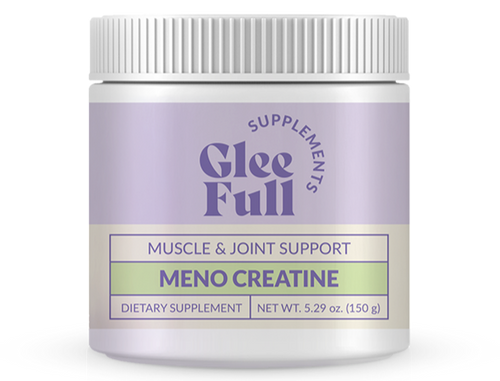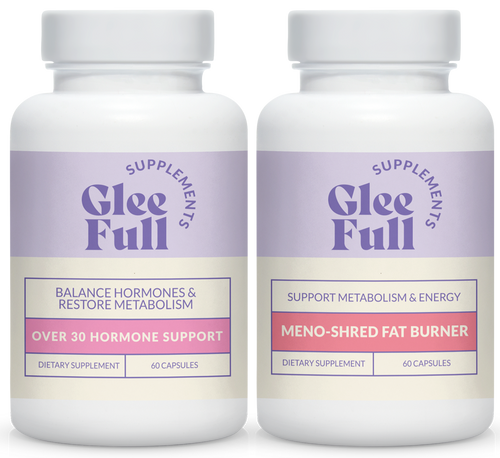
Do you experience hot flashes, insomnia, mood swings, and belly fat?
If you do, then you probably know how frustrating it is to deal with the symptoms of hormonal changes.
You might be thinking, "Why is this happening to me?" The truth is that one of the main culprits of these issues is poor sleep. Deep sleep is crucial for women's hormonal health, especially during menopause.
In addition, During deep sleep, your body releases human growth hormone, which helps to repair and rebuild tissues, bones, and muscles. So, if you're not getting enough deep sleep, your body may not be able to repair itself as efficiently, leading to a whole host of health problems.
Sleep and Hormones
As women approach menopause, their estrogen and progesterone levels fluctuate, which can lead to sleep disturbances. These hormonal changes can cause hot flashes, night sweats, and insomnia, all of which can affect sleep quality and quantity.
Research has shown that sleep disruption can further exacerbate hormonal imbalances, creating a vicious cycle. Inadequate sleep can lead to increased cortisol levels, a stress hormone that can interfere with the production of estrogen and progesterone.
Furthermore, sleep deprivation can affect the production of growth hormone, which is essential for tissue repair and regeneration. This can lead to a decrease in bone density, muscle mass, and skin elasticity, which are all common issues that women over 40 may experience.
Therefore, it is crucial for women over 40 to prioritize quality sleep as part of their overall health and wellness routine. This can include creating a regular sleep schedule, reducing caffeine intake, establishing a relaxing bedtime routine, and ensuring that the sleep environment is comfortable and conducive to restful sleep. By prioritizing quality sleep, women can help maintain hormonal balance, reduce the risk of health problems, and improve their overall quality of life.
The Association Between Sleep and Metabolic Syndrome
Sleep also plays a critical role in regulating your body's metabolism. When you don't get enough sleep, your body produces more cortisol, the stress hormone, which can cause your blood sugar levels to spike and your metabolism to slow down. This can lead to weight gain, especially around the belly area, which is already a problem for many women during menopause.
When you don't get enough deep sleep, your body's natural hormonal balance is disrupted.
Your cortisol levels increase, which can lead to increased belly fat and mood swings. Your estrogen levels decrease, which can cause hot flashes and night sweats. Your progesterone levels decrease, which can cause insomnia and anxiety.
During deep sleep, your body releases other critical hormones, which helps to manage insulin, cortisol levels. They also plays a critical role in regulating your body's metabolism, including how the body breaks down carbs which can help reduce belly fat.
Deep sleep is also when your body produces the majority of its melatonin, which helps regulate your sleep-wake cycle.

As people age, changes occur in the body that can contribute to difficulty sleeping. One of the main factors is a decrease in the production of the hormone melatonin, which plays a key role in regulating the sleep-wake cycle. As a result, older adults may find it harder to fall asleep or stay asleep throughout the night. Additionally, other health conditions commonly seen in older adults, such as arthritis, chronic pain, and sleep apnea, can contribute to sleep disturbances. Lifestyle factors such as increased stress, caffeine consumption, and irregular sleep patterns can also affect sleep quality. Additionally, changes in circadian rhythms can also impact sleep, with older adults tending to feel sleepy earlier in the evening and waking up earlier in the morning. There are many complex factors that can contribute to sleep difficulties in older adults, making it important to address underlying health conditions and implement healthy sleep habits to promote better sleep quality.
How Much Sleep Does a Woman Need?
The amount of sleep a woman needs can vary depending on factors such as age, lifestyle, and overall health. However, the National Sleep Foundation recommends that adults between the ages of 18-64 should aim for 7-9 hours of sleep per night.
It is important to note that women may require more sleep during certain times in their lives, such as during pregnancy or menopause. Additionally, women who engage in physically demanding activities or who have high levels of stress may need more sleep to allow their bodies to recover and rejuvenate.
Ultimately, it is important to listen to your body and make sure you are getting enough sleep to feel rested and alert during the day. If you consistently struggle with getting enough sleep, it may be helpful to talk to a healthcare professional to identify any underlying issues or develop strategies to improve your sleep habits.
Signs That Your Body is Not Getting Enough Sleep:
- Excessive daytime sleepiness or fatigue
- Difficulty concentrating or remembering things
- Mood swings, irritability, or anxiety
- Reduced reaction time and coordination
- Increased appetite and cravings, especially for sugary or high-carbohydrate foods
- Reduced immune function and increased susceptibility to illnesses
- Headaches, body aches, or other physical symptoms
- Restless sleep or waking up frequently during the night
- Snoring or gasping during sleep
- Difficulty falling asleep or staying asleep.
Five simple things that you can do to improve your sleep:
-
Stick to a sleep schedule: Try to go to bed and wake up at the same time every day, even on weekends. This helps regulate your body's internal clock and can improve the quality of your sleep.
-
Create a bedtime routine: Create a relaxing bedtime routine to help prepare your body and mind for sleep. This could include taking a warm bath, reading a book, or listening to calming music.
-
Limit caffeine and alcohol: Caffeine and alcohol can interfere with your sleep, so try to limit your intake. It's best to avoid caffeine after noon and to limit alcohol to one drink per day.
-
Consume beneficial herbs: Hibiscus, chamomile flower, white willow bark, hops flowers, and L-Tryptophan are all herbs that can help improve sleep quality. These herbs have been used for centuries for their calming and sleep-inducing effects.
-
Consider taking a sleep supplement: If you're struggling to get enough of these beneficial herbs in your diet, consider taking a sleep supplement. Meno Belly Night Burn is a supplement that contains all of these herbs, as well as other ingredients that can help improve sleep quality and regulate hormones.
Meno Belly Night Burn is a simple and easy solution to help improve your sleep and support your hormonal health during menopause. This supplement is designed specifically for women over 40 who are struggling with hormonal changes and poor sleep. With regular use, Meno Belly Night Burn can help you wake up feeling refreshed and rejuvenated, and help you feel your best during the day.
In conclusion, deep sleep is crucial for women's hormonal health, especially during menopause. Poor sleep can disrupt your body's natural hormonal balance and lead to a range of symptoms, including hot flashes, insomnia, mood swings, and belly fat. By following these simple tips and considering a sleep supplement like Meno Belly Night Burn, you can help improve your sleep quality and support your hormonal health during this time of transition.

 Meno-Burn Collagen
Meno-Burn Collagen
 Meno Morning Fat Burner
Meno Morning Fat Burner
 Meno-Shred Fat Burner
Meno-Shred Fat Burner
 Carb Blocker
Carb Blocker
 Flat Tummy Tea
Flat Tummy Tea
 GLP-1 Crave Control
GLP-1 Crave Control
 Over 30 Hormone Support
Over 30 Hormone Support
 Over 30 Hormone Support Plus
Over 30 Hormone Support Plus
 Estro Harmony
Estro Harmony
 Adrenal Restore
Adrenal Restore
 Eternal Passion
Eternal Passion
 Thyroid Balance
Thyroid Balance
 HormoneLyte
HormoneLyte
 Post Meno Boost
Post Meno Boost
 Meno Brain Support
Meno Brain Support
 Meno Belly Flusher
Meno Belly Flusher
 Meno Gut Advanced
Meno Gut Advanced
 Bloat Buster
Bloat Buster
 Meno Belly Night Burn
Meno Belly Night Burn
 Meno Joint Relief
Meno Joint Relief
 Over 30 Multi Vitamin
Over 30 Multi Vitamin
 Meno Gluco Control
Meno Gluco Control
 V-Rejuvenation
V-Rejuvenation
 Meno Creatine
Meno Creatine
 Meno-Weight Loss System
Meno-Weight Loss System
 Meno-Detox System
Meno-Detox System
 Meno Joint Support System
Meno Joint Support System
 Meno Deep Sleep System
Meno Deep Sleep System
 Meno Mood Boost System
Meno Mood Boost System
 Complete Hormone Reset Bundle
Complete Hormone Reset Bundle
 Ultra Fat Burner Bundle
Ultra Fat Burner Bundle






